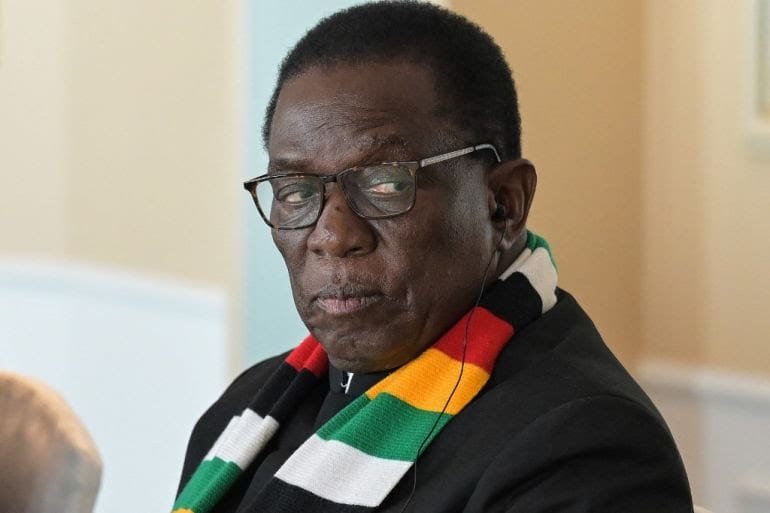Zimbabwe’s ruling party, ZANU-PF, has launched a political initiative to extend President Emmerson Mnangagwa’s presidency by two additional years — a move that could see the 83-year-old leader remain in power until 2030.
The proposal was formally endorsed during the party’s annual conference in the eastern city of Mutare, where delegates unanimously supported a resolution instructing the government to draft constitutional amendments enabling the extension.
Justice Minister Ziyambi Ziyambi, who also serves as ZANU-PF’s legal secretary, announced the decision, describing it as part of an effort to ensure “continuity and stability” in government policy.
Party Divisions Emerge
While the motion drew loud applause from loyalists at the gathering, it has deepened internal divisions within the ruling party.
Factions aligned with Vice President Constantino Chiwenga have voiced opposition, accusing Mnangagwa’s supporters of attempting to undermine constitutional order.
Blessed Geza, a veteran of Zimbabwe’s liberation struggle and known ally of Chiwenga, has publicly criticised the move through online broadcasts, calling it a betrayal of democratic principles.
Despite these tensions, ZANU-PF’s parliamentary majority gives the party significant leverage to push through constitutional changes. However, analysts say the process is likely to face legal challenges from the opposition and civil society.
Opposition Promises Legal Action
Prominent opposition figures have condemned the proposal, warning that it represents a “dangerous assault” on Zimbabwe’s Constitution.
Lawyer and opposition leader Tendai Biti vowed to challenge any attempt to alter presidential term limits in court, insisting that “no one is above the law or the Constitution.”
On Friday, police in Harare arrested ten elderly activists accused of mobilising protests against the term extension. Authorities said they were being investigated for “inciting public disorder.”
Economic Woes and Political Tension
Mnangagwa, who came to power in 2017 after the ousting of Robert Mugabe, has faced mounting criticism over Zimbabwe’s worsening economic crisis, marked by hyperinflation, unemployment, and corruption allegations.
Though the president has repeatedly declared himself a “constitutionalist” with no interest in clinging to power, his silence on the proposed extension has fuelled speculation about his intentions.
Observers say the renewed manoeuvring signals an intensifying power struggle within ZANU-PF — between those seeking to keep Mnangagwa in office until 2030 and those preparing to rally behind Chiwenga as a potential successor.



